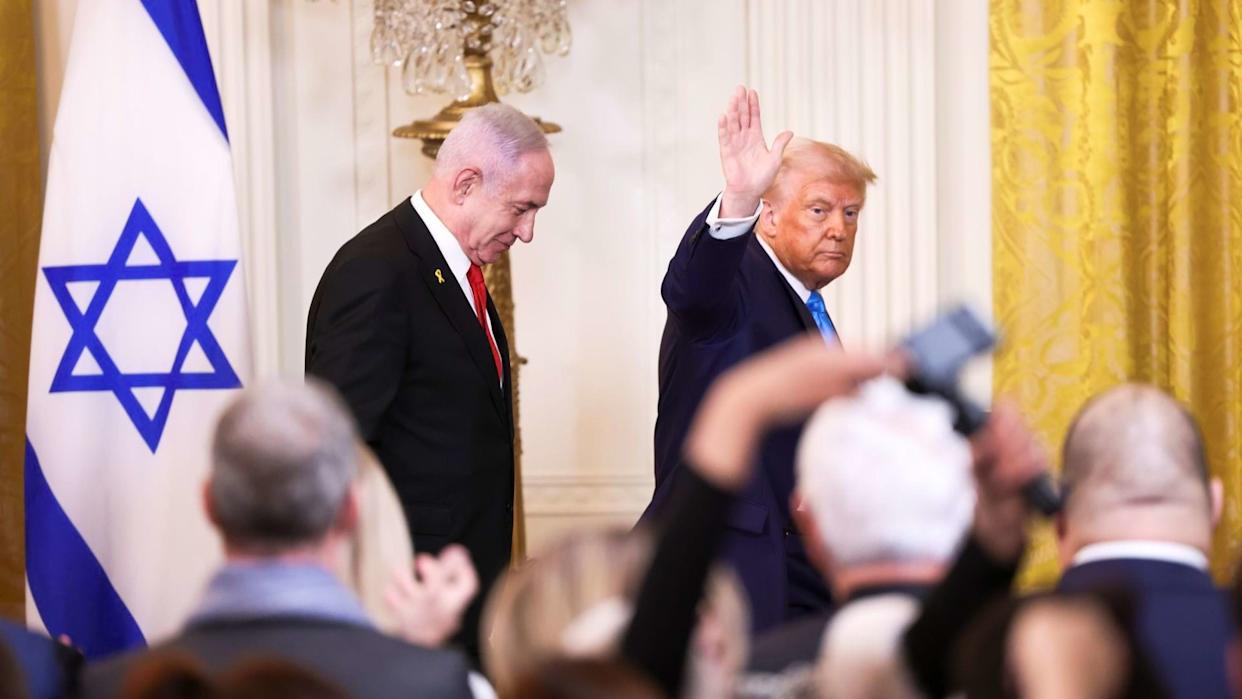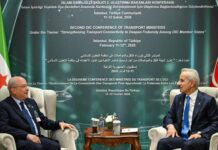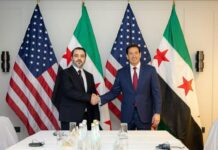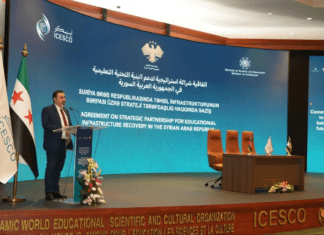
Israel is treading carefully as the geopolitical landscape in Syria shifts dramatically following the US decision to lift sanctions on Damascus. The move, announced by President Donald Trump during his Middle East tour, has caused ripples across the region, particularly in Israeli security circles, which fear a diminished role in shaping Syria’s future.
Speaking aboard Air Force One, Trump defended his decision, citing broad regional support, including from Turkey and Saudi Arabia. “I didn’t consult [Israel] about it. I thought it was the right decision,” he told reporters. Trump praised Syrian President Ahmad al-Sharaa as “charismatic” and “a real leader,” signaling strong US backing for the newly recognized government in Damascus.
This sudden pivot has left Israel diplomatically sidelined. Reuters reported on May 15 that Israel’s government remained notably silent as Washington pursued deeper engagement with Damascus and sought normalization between Syria and Israel through backchannel diplomacy involving the UAE and Azerbaijan. Trump encouraged Syria to sign the Abraham Accords, expel foreign and Palestinian fighters, and commit to preventing the resurgence of ISIS.
Turkish Influence on the Rise
Yet Israeli analysts warn that this new US posture may embolden regional actors like Turkey. Amir Bar-Shalom, military correspondent for Zaman Israel, noted that recent Turkish military maneuvers in Syrian airspace may reflect growing confidence. According to Bar-Shalom, Turkey views its presence in northern Syria as a historical entitlement, rooted in Ottoman-era influence, and is unlikely to tolerate perceived threats to its interests there.
“Erdogan is acting not just as a regional power broker but as a guardian of a neo-Ottoman legacy,” Bar-Shalom wrote in an article translated by Arabi21. “With Turkey backing Sharaa and Israel finding itself increasingly isolated, the situation is evolving rapidly.”
Indeed, the Turkish-Israeli diplomatic relationship has cooled as military tensions heat up, with Erdogan refusing to allow Prime Minister Netanyahu’s aircraft access to Turkish airspace during a recent visit to Baku. Analysts say Erdogan’s strategy involves pressuring Israel economically and diplomatically unless a broader regional agreement over Syria is reached.
Possibility of Syrian Israeli Diplomacy?
Israel’s unease also stems from the prospect of Syria’s normalization with its Arab neighbors under conditions it cannot control. Hebrew media outlets have reported initial contacts between Syrian and Israeli businesspeople exploring post-sanctions investment opportunities.
Despite outreach from Damascus, Tel Aviv remains wary. Netanyahu has demanded that southern Syria be demilitarized, a stance that sparked anger in Syria leading Damascus to meet with Druze leaders in an effort to defuse tensions.
As the US increasingly prioritizes economic deals with Gulf states and recalibrates its Syria policy, Israeli officials find themselves navigating a volatile environment with diminished leverage. For now, Israel appears caught between a resurgent Ankara, a diplomatically ambitious Washington, and a Syrian leadership eager to redefine its place in the region.








